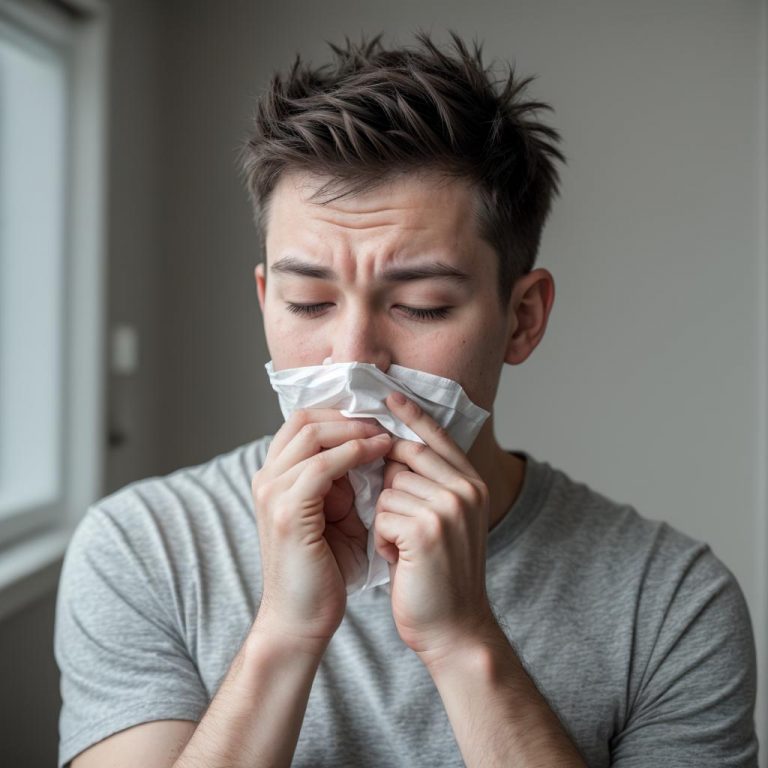

Understanding the impact of allergies on coughing
Allergies can wreak havoc on our respiratory system, causing symptoms ranging from sneezing and nasal congestion to coughing fits.
Coughing is a common response to allergens such as pollen, dust mites, pet dander, and mold spores. When these allergens enter the airways, they trigger the body’s immune response, leading to inflammation and irritation, which manifest as a persistent cough. While allergies affect individuals differently, managing cough due to allergies requires understanding its triggers and adopting effective strategies for relief.
Identifying allergy-induced cough
Distinguishing between a cough caused by allergies and one caused by other factors can be challenging. Allergy-induced coughs often occur alongside other typical allergy symptoms like itchy eyes, sneezing, and a runny nose. Moreover, allergy-related coughs tend to be chronic or recurrent, especially during specific seasons when allergen exposure is high. Tracking symptoms and their patterns can help individuals recognize whether their cough is allergy-related or not.
Strategies for managing allergy-induced cough
Avoidance of Allergens: Minimize exposure to allergens by keeping indoor spaces clean, using air purifiers, and avoiding outdoor activities during high pollen seasons. Creating a dust-free environment by regularly cleaning surfaces and washing bedding can also help reduce allergen exposure.
Medications: Over-the-counter antihistamines, decongestants, and nasal corticosteroids can provide relief from allergy symptoms, including coughing. These medications work by reducing inflammation and suppressing the body’s allergic response. It’s essential to follow the recommended dosage and consult a healthcare professional before starting any new medication.
Allergy Shots (Immunotherapy): For individuals with severe allergies that do not respond well to medications, allergy shots may be recommended. Allergy shots involve regular injections of small amounts of allergens, gradually desensitizing the immune system and reducing allergic reactions over time. This can lead to long-term relief from allergy symptoms, including coughing.
Hydration: Staying hydrated helps thin mucus secretions, making it easier to expel irritants from the airways through coughing. Drinking plenty of water and other fluids can soothe an irritated throat and alleviate coughing episodes.
Steam Inhalation: Inhaling steam from a bowl of hot water or taking a warm shower can help loosen mucus and ease congestion, providing temporary relief from allergy-induced coughing.
Humidifiers: Using a humidifier in the bedroom or other living spaces can add moisture to the air, preventing the airways from drying out and reducing coughing caused by irritation.
When to seek medical attention
While most allergy-induced coughs can be managed effectively with home remedies and over-the-counter medications, it’s essential to seek medical attention if:
Coughing persists for more than a few weeks despite treatment.
Coughing is accompanied by severe symptoms such as difficulty breathing, chest pain, or wheezing.
Allergy symptoms significantly impact daily activities and quality of life.
A healthcare provider can perform a thorough evaluation, identify any underlying conditions contributing to coughing, and recommend appropriate treatment options.
Coughing due to allergies can be disruptive and uncomfortable, but with proper management strategies, relief is possible. By understanding allergy triggers, minimizing exposure to allergens, and utilizing medications and home remedies, individuals can effectively control allergy-induced coughing and improve their overall quality of life. If coughing persists or becomes severe, seeking medical attention is crucial to identify any underlying issues and receive appropriate treatment. With the right approach, allergy sufferers can breathe easier and cough less frequently, enjoying a healthier and more comfortable lifestyle.



